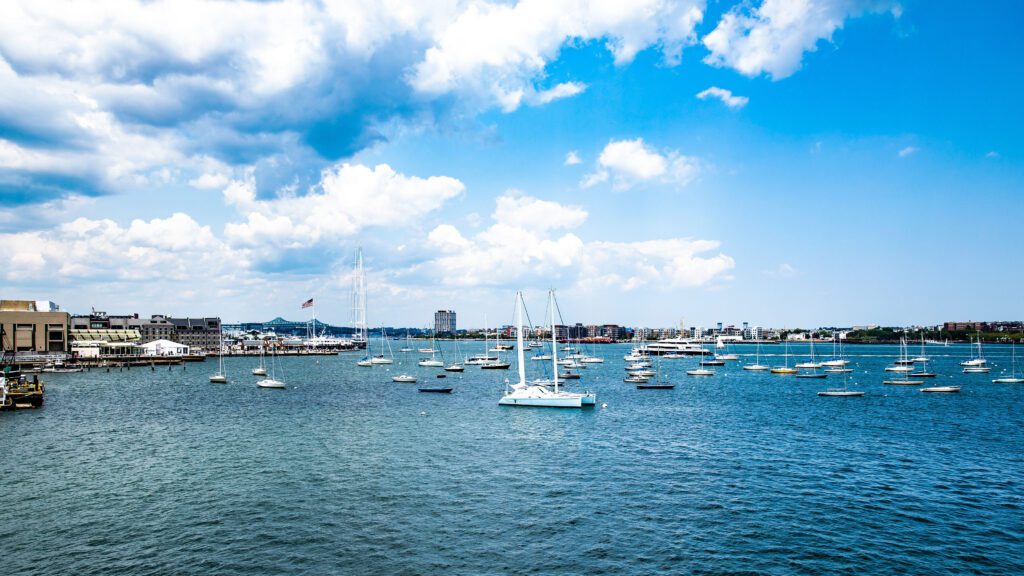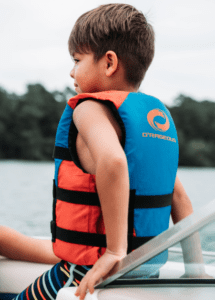

Si es usted propietario de uno de los casi 12 millones de barcos registrados en Estados Unidos, ¡adelante! Navegar es una forma estupenda de disfrutar de la naturaleza que nos rodea, sobre todo cuando hace sol o calor. La brisa fresca y la diversión con los amigos y el agua hacen que el día sea delicioso.
Pero antes de zarpar o pisar el acelerador, asegúrese de que maneja la embarcación con seguridad. Sigue leyendo para aprender algunas cosas que todo el mundo debería saber sobre la seguridad de las embarcaciones, ¡y otros consejos menos conocidos!
¿Merece la pena un curso de seguridad náutica?
Sí. Una libre curso de seguridad para embarcaciones en Massachusetts requiere un poco de tiempo, pero merece la pena. El curso, abierto a mayores de 12 años, dura varios días y entre 10 y 12 horas.
Un curso de seguridad en la navegación puede parecer una molestia, pero podría ser la diferencia entre pasar un buen día en el barco y que usted o sus pasajeros sufran una lesión en la navegación o incluso se conviertan en víctimas de un accidente de navegación.
Más de 4.000 accidentes de navegación en 2022, con el resultado de 2.222 heridos y 658 muertos. Por lo tanto, aunque tomar el curso puede requerir un poco más de tiempo y esfuerzo, ir a su viaje en barco armado con conocimientos de seguridad en la navegación hace que las cosas sean más seguras y menos estresantes para todos.
"Hacer un curso de seguridad náutica es muy importante", dice Chad Hunter, capitán de puerto de Plymouth, Massachusetts. "Mucha gente no es consciente de los riesgos y de estar en el agua: el entorno cambia constantemente".
Si buscas una opción complementaria, Barco en curso tiene una gran biblioteca de contenidos con consejos esenciales para la seguridad en el barco. Echa un vistazo a sus recomendaciones sobre qué llevar para Equipamiento esencial para la seguridad en la navegación ¡Abajo!
Elabore una lista de comprobación de la seguridad en la navegación
Antes de subir a bordo y salir a pasar el día, es importante que revise sus lista de control de seguridad para embarcaciones para asegurarse de que ha tenido en cuenta cualquier posible riesgo para la seguridad. Siga leyendo para conocer seis componentes clave que debe incluir en su lista de comprobación de seguridad en la navegación.
- Consulta la previsión meteorológica. Esto puede parecer obvio, pero cuando planifique un viaje en barco, asegúrese de que el tiempo será bueno para la navegación. Puede que las previsiones meteorológicas fueran soleadas cuando planeaste el viaje, pero asegúrate de que se cumplen. ese día.
- Presentar un plan de flotación. Alguien tiene que saber adónde vas, quién te acompaña y qué llevas, así como los datos de matriculación de tu embarcación. De este modo, alguien dispondrá de datos clave que podrá compartir con los primeros intervinientes en caso de que te pierdas, te quedes atascado o no regreses de la travesía.
- Asegúrate de llevar chalecos salvavidas. Todas las personas a bordo de su embarcación deben tener un chaleco salvavidas. Los niños están obligados a llevar chaleco salvavidas en todo momento en los barcos, y nuestros amigos peludos también deberían tenerlos.


"El mejor chaleco salvavidas es el que tú te pongas", afirma Peg Phillips, directora ejecutiva del National Safe Boating Council. "Tanto si vas a pescar como si simplemente vas a disfrutar de un paseo en barco, asegúrate de que estás preparado para la aventura llevando un chaleco salvavidas y sabiendo cómo utilizar el equipo de seguridad obligatorio".
4. Elementos generales de seguridad. Mientras consigues los chalecos salvavidas, asegúrate de llevar otros equipo de seguridad para embarcaciones como un extintor, un sistema de navegación o dispositivos de flotación.
- Vístase adecuadamente. Asegúrate siempre de llevar ropa adecuada para estar en el agua. Por muy buena que parezca la previsión, siempre es buena idea llevar una sudadera, una chaqueta impermeable, gafas de sol y un sombrero para asegurarte de que estás cubierto en caso de tiempo impredecible.
- Toma precauciones adicionales. Consigue un comprobación gratuita de buques a través de la Guardia Costera de EE.UU., y comparte las características de seguridad y las instrucciones de funcionamiento con al menos uno de tus pasajeros para que estén preparados para ayudar en caso de emergencia. No sólo puede sacarte más rápidamente de una situación complicada, sino que es importante contar con refuerzos en caso de que el operador de la embarcación se lesione o quede incapacitado durante el viaje.
"Prepárese para una gran temporada de navegación inspeccionando su equipo de seguridad para la navegación y comprométase a proporcionar chalecos salvavidas cómodos para que todos sus pasajeros los lleven cada vez que salgan a navegar", dijo Phillips.
Consejos de seguridad para el viaje inaugural de su barco
Ya sea marinero o amante de las lanchas rápidas, la navegación es una forma de vida para mucha gente.
Pero todo el mundo tiene que empezar por algún sitio, así que asegúrese de prepararse adecuadamente para su primer viaje en barco. Aunque hayas realizado el curso de seguridad y repasado la lista de comprobación de seguridad de la embarcación, ¡no vayas de 0 a 100!
"La mayoría de la gente empieza con barcos pequeños", dice Hunter. "No es como un coche, no puedes aparcar y marcharte. Te paras, pero sigue en movimiento".
Tómatelo con calma. La primera vez que salgas al agua, debes hacer demasiado hincapié en la seguridad. Prepárate de antemano para lo que vas a hacer, y evita la tentación de excederte en las actividades. En lugar de llevar esquís acuáticos, aparejos de pesca y un traje de buzo, hable con su grupo de navegación y pónganse de acuerdo en una sola actividad para garantizar que todos tengan una experiencia segura.
Otros consejos importantes de seguridad para embarcaciones
No bebas cuando estés al timón. Quien maneja la embarcación tiene en sus manos la seguridad de todos los que van a bordo. Si el operador de la embarcación ha bebido, todos están en peligro.
Cuidado con la hipnosis del navegante. Si es usted quien maneja la embarcación, los riesgos de beber alcohol son aún mayores debido a un fenómeno llamado Hipnosis del navegante. La combinación de ruido y vibraciones, junto con el sol, el resplandor y el viento en mar abierto, puede hacer que el operador de una embarcación reaccione con lentitud, reflejando los efectos de la bebida. Si se añade el alcohol a la ecuación, el deterioro puede ser aún mayor, lo que constituye una receta para el desastre.
>> ¿Va a celebrar una comida al aire libre? Lea estos importantes consejos de seguridad alimentaria
"Hay muchos factores de estrés añadidos por los que pasa tu cuerpo", dice Hunter. "Sólo aumenta la intoxicación. Deberías dedicar un capitán que no beba cuando salgas en barco".
Saber navegar. La mayoría de las vías navegables tienen gráficos preparados por el gobierno o a nivel local. Aprender a leer las cartas de navegación es muy útil para mantener su seguridad y la de sus compañeros en el agua.
Utiliza el interruptor de corte del motor. También conocido como cordón de seguridad o interruptor de apagado del motor, el interruptor de desconexión del motor está diseñado para detener el motor de la embarcación si el operador sale despedido del timón. Esta característica de seguridad es esencial para los operadores de embarcaciones a motor, especialmente cuando giran a gran velocidad o navegan por aguas más agitadas.


¿Tiene una lesión relacionada con la navegación? ¡Keches Law Group puede ayudarle!
Póngase en contacto con abogados de daños personales para ayudar a presentar un caso de lesiones personales relacionadas con la navegación, o nuestra abogados de indemnización por accidente de trabajo para presentar una reclamación en virtud de la Longshore and Harbor Workers' Compensation Act (LHWCA).




